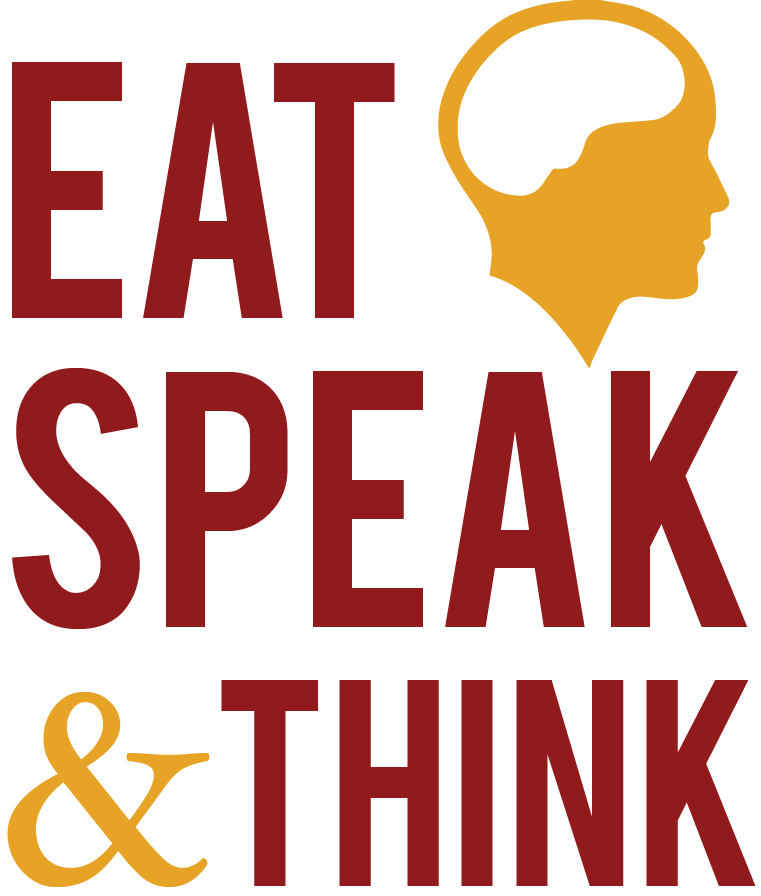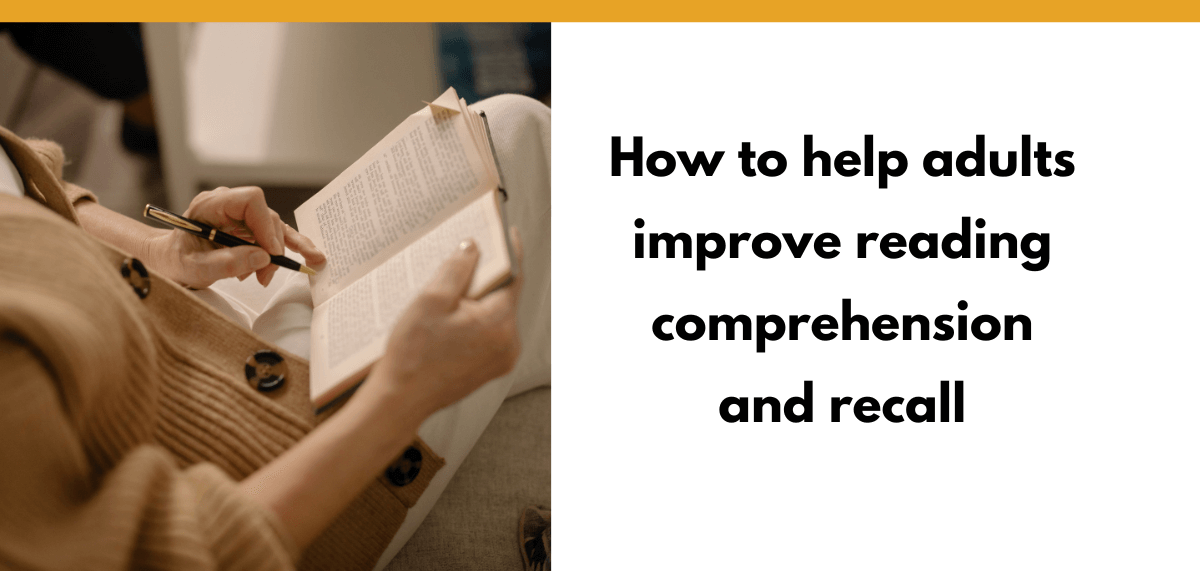Speech-language pathologists often work with adults who can read paragraphs, but who have trouble fully processing or recalling the information. Our patients may complain that they quickly forget what they’ve read. Or they may “get the gist” of what they’ve read, but don’t fully grasp the material. I’ve created three templates to help adults improve reading comprehension and recall.
Free DIRECT downloads: Reading for Information and Later Recall (patient handout). (Email subscribers get free access to all the resources in the Free Subscription Library.)
Outline:
- Attentive Reading and Constrained Summarization (ARCS).
- The problem with handing a patient a blank page.
- 3 templates to support reading for information.
- Tips for the SLP.
- Share your feedback!
- Related Eat, Speak, & Think posts.
Attentive Reading and Constrained Summarization (ARCS)
If you’ve seen my tutorial on Attentive Reading and Constrained Summarization (ARCS) or the follow-up case study, then you know that ARCS a helpful discourse-level treatment. I often use ARCS to help patients who have trouble with word-finding, topic maintenance, and short term memory concerns.
ARCS involves asking a patient to write down key points from the material they’re reading or listening to, re-read, and then summarize the entire passage aloud from memory. (See the tutorial for various protocols.)
This has worked quite well for some of the patients I’ve tried it with. However, I’ve tried this approach with some patients who I thought were appropriate, but they couldn’t do it. I think some of them, at least, were overwhelmed by staring at a blank sheet of paper (to make their notes on).
The problem with handing a patient a blank page
As a fiction writer, I know that staring at a blank page can be paralyzing because the creativity has to come from within.
This is not what’s going on with the ARCS task. Our patient has a written passage, and we are asking them to copy down key words or phrases. This task doesn’t involve creativity, per se. And yet, some of them still seem paralyzed.
I think these patients are hindered by impaired executive function skills. With ARCS, we are asking our patients to sustain attention for a multi-step, complex activity.
In order to apply ARCS to a paragraph, our patient has to:
- Read and comprehend the first sentence.
- Decide which word(s) or phrase(s) are the key ones to remember.
- Write down the key points without copying the whole sentence.
- Organize their writing so that it’s useful.
- Repeat for each sentence in the paragraph.
- Read the written notes.
- Reconstruct the passage in their own words.
- Retell the passage from memory.
The highest of my high-functioning patients can do this with some amount of training in the first session. With my other patients, I see failures at each step of the process.
Some patients have a care partner who is willing and able to support them with each step for daily practice. But many of my patients don’t have a buddy to help out. This is where a template might be useful.
3 templates to support reading for information
I’ve created three templates to support reading for information and later recall. These do not have to be used with an ARCS protocol. You may find these useful for your own reading comprehension and/or short term memory exercises.
Each template provides space for our patient to write down specific details from what they’re reading. Then the patient is asked to make associations and to engage in visualization of the information.
One template asks the patient to organize information based on the 5 wh-questions + how. The second asks the patient to identify the main point of the passage and up to 5 supporting details. And the final template is more open-ended, allowing the patient to identify the key words and phrases in any order they choose.
We can use these templates to provide a structure for the patient who has difficulty creating organized notes or who has difficulty applying memory encoding techniques. Hopefully, this will also allow our patients to engage with ARCS or other therapy activities outside of our sessions.
Tips for the SLP
Here are some considerations we can keep in mind:
- Select reading material that is relevant to each specific patient.
- Using personalized reading material is a win-win. Not only is our patient learning reading and recall strategies, but they are also learning material that is important to them.
- Start with an easier passage.
- Start with success to build self-confidence.
- Preferred reading material may be dense or abstract. Scan the paragraph before selecting.
- May choose to work with a single sentence rather than a paragraph.
- Perform task analysis as they complete the first template.
- Where did problems arise? Did they rush? Did they double-check?
- Ask your patient for ideas on how to avoid this error next time.
- Teach strategies or add steps to the task as needed.
- Increase difficulty by increasing the length of the material, increasing the level of reading difficulty, or choosing more challenging or unfamiliar topics.
Share your feedback!
If you use these templates with your patients, I’d love to hear how it goes. I’m always open to suggestions. I love getting emails and comments on social media. If you share in the comments below, we could all learn from each other as well.
Related Eat, Speak, & Think posts
- Attentive Reading and Constrained Summarization tutorial.
- My patient improved conversation with ARCS.
- An easy way to write participation-level speech therapy goals.
Free DIRECT downloads: Reading for Information and Later Recall (patient handout). (Email subscribers get free access to all the resources in the Free Subscription Library.)
Featured image by cottonbro studio from Pexels, on Canva.com.
Lisa earned her M.A. in Speech-Language Pathology from the University of Maryland, College Park and her M.A. in Linguistics from the University of California, San Diego.
She participated in research studies with the National Institute on Deafness and other Communication Disorders (NIDCD) and the University of Maryland in the areas of aphasia, Parkinson’s Disease, epilepsy, and fluency disorders.
Lisa has been working as a medical speech-language pathologist since 2008. She has a strong passion for evidence-based assessment and therapy, having earned five ASHA Awards for Professional Participation in Continuing Education.
She launched EatSpeakThink.com in June 2018 to help other clinicians be more successful working in home health, as well as to provide strategies and resources to people living with problems eating, speaking, or thinking.



Be First to Comment